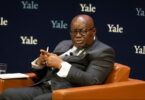A new report has revealed that up to 93% of Nigerians think that they are living in an economic recession in 2024.
The report by Nielsen IQ titled “Growing around the big squeeze” detailed the effect of recent macroeconomic shocks in the country especially among citizens and how it affects their purchasing power.
According to the report, Nigerians who believe they are living in an economic recession in 2024 had risen from 78% in 2023 to the current figure.
The report also noted that around 33% of Nigerians believe the country’s economy will slide into a recession in the next 12 months- an increase from 18% in the previous year.
Furthermore, the report noted that 77% of Nigerians only have money for their basic needs- food, and shelter. It also shed light on the top concerns of consumers in the country with an increase in food prices coming out on top followed by a prospective economic downturn.
The report highlighted that survival instincts are driving consumer behaviour, with a growing number of Nigerians planning to cut back on discretionary spending even more than in 2023.
Specifically, the report noted a decline in spending on outdoor dining, clothing, food delivery, and takeaways, while essential categories such as education, healthcare, utilities, household groceries, and childcare are seeing increased spending.
In terms of loyalty to brand, the reported noted high prices are driving brand disloyalty among Nigerians with up to 70% of Nigerians saying they have changed brands in the last one year. Across board, Nigerian consumers displayed higher brand disloyalty across cleaning and laundry products followed by toothpaste, cooking oil and milk.
However, Nigerians have shown the least disloyalty towards alcoholic drinks, juice/nectars and telecommunication brands according to the report.
In the past one year, the Nigeria economy has come under severe macroeconomic shocks following the twin reforms of President Tinubu- removal of fuel subsidy and unification of the foreign exchange market.







